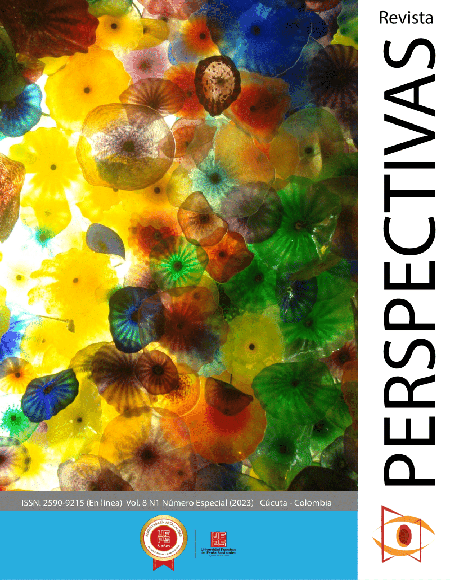Knowledge About Mathematical Ideas About Infinity. The Case Of The Mathematics Educators In Training At The University Of Nariño
El conocimiento a cerca de las ideas matemáticas sobre el infinito. El caso de los educadores matemáticos en formación de la universidad de nariño
Main Article Content
This article discriminates the mathematical ideas that a group of mathematical educators promote through the teaching of infinity. To achieve the above, the model of the specialized knowledge of the mathematics teacher was adapted. A qualitative descriptive approach was assumed; as a population, 50 teaching sequences designed by the same number of mathematics educators were considered, aimed at encouraging the study of infinity in an engineering course. Two categories of analysis were considered to organize the research data: mathematical ideas about infinity and epochs of development of infinity. As a result, it is inferred that Mathematics Educators in Training have a limited domain over this concept since the mathematical ideas used for the development of the teaching sequences were fundamentally referred to intuitive ideas of the same that are located in ancient times and consequently, ideas such as the definition of an infinite set or the correspondence between the actual and potential infinities, of modern and contemporary times were not fully considered.
Downloads
Article Details
Bisquerra, R. (1989). Métodos de Investigación Educativa, Barcelona: CEAC.
Carrillo, J., Climent, N., Contreras, L.C. & Muñoz-Catalán, M. C. (2013). Mathematics Teacher Specialized Knowledge. In: Proceedings of the Eighth Congress of the European Society for Research in Mathematics, 8 th, Antalya. CERME 8, Antalya, Turquía: CERME 8. 2013. p. 2985-2994.
Date-Huxtable, E., Cavanagh, M., Coady, C. & ichael Eas (2018). Conceptualisations of infinity by primary pre-service teachers. Mathematics Education Research Journal, 30(4), 545 - 567 DOI: https://doi.org/10.1007/s13394-018-0243-9
Flórez, R. y Tobón, A. (2001). Investigación educativa y pedagógica. Bogotá, Colombia: McGraw Hill
González, J., Morales, A. & Sigarreta, J-M. (2013). Concepciones sobre el infinito: Un estudio a nivel universitario. Matemáticas, educación e internet, 13(2), 1-12 DOI: https://doi.org/10.18845/rdmei.v13i2.1061
Holton, D., Symons, D. (2020) 'Infinity-based thinking' in the primary classroom: a case for inclusion in the curriculum. Mathematics Education Research Journal, 33(3), 1-16 DOI: https://doi.org/10.1007/s13394-020-00311-4
Marmolejo, G. y Mosquera, S. (2021). Razonamiento cuantitativo y demanda semiótico-cognitiva en las guías de orientación de las pruebas saber. San Juan de Pasto: Editorial Universidad de Nariño.
Marmolejo, G-A. (2021). Función de control visual en el tratamiento del área de superficies planas. Un estudio comparativo de libros de texto colombianos y españoles. Pasto: Editoral Universidad de Nariño
Montes, M., & Carrillo, J. (2017). Conocimiento Especializado del Profesor de Matemáticas acerca del infinito. Bolema, 31(57), 114-134. DOI: https://doi.org/10.1590/1980-4415v31n57a06
Montes, M., Contreras, L-C. & Carrillo, J. (2018). Maestro, ¿cuál es el número más grande que existe? Trascendiendo el currículum en la exploración del conocimiento especializado del profesor. Avances de Investigación en Educación Matemática, 13(1), 5 – 20 DOI: https://doi.org/10.35763/aiem.v0i13.226
Stake, R. E. (2000). Case Studies. In N. K. Denzin, & Y. S. Lincoln (Eds.), Handbook of Qualitative Research (435-453).







